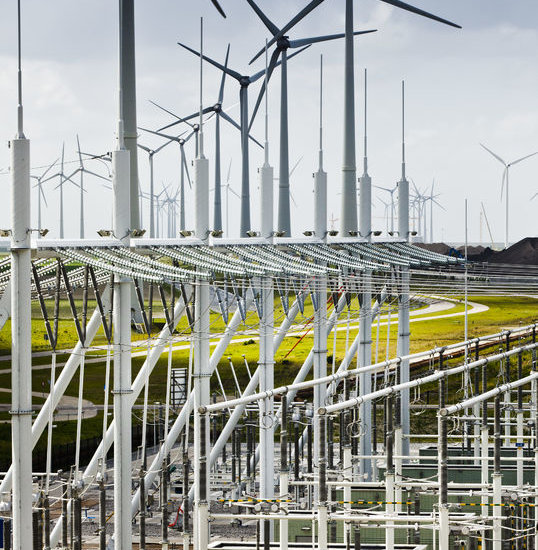Resilient Synchromeasurement-based Grid Protection Platform
The design, control and operation of electric power systems (EPS) are undergoing significant changes. The environmental policies govern the society towards zero-carbon emission by 2050 with energy production based only on renewable energy sources. The utilization of large amount of wind and solar energy is related to massive use of power electronic devices, multi-terminal HVDC and especially in the Netherlands, a large amount of long high voltage (HV) and medium voltage (MV) AC and DC cables. Project ReSident deals with the design of a novel high-resolution synchronized measurement supported simulation platform, big data management, data mining and analytics to reduce the risk of cascading events, as well as to classify and locate disturbances based on novel algorithms verified by actual data.
The increased system complexity is in line with the increased level of disturbances that the power system becomes vulnerable to, especially in terms of power quality and security of supply; factors that significantly influence system reliability and stability. The increased level of DG penetration results in decreasing system inertia. Hence, the composition of loads and frequent manoeuvres of DG supply become nearly an unpredictable process and may result in power swings causing unnecessary protection operation. Power quality- and transient monitoring will definitely help to improve the efficiency of system operation and its reliability. Low-, medium- and high voltage networks present different set of disturbances. The main concern in this subject is to find the cause of disturbance in the power system and to apply corrective measures so that the system continues its operation without the interruption of power supply. This activity requires knowledge of power systems and signal processing. In order to provide quick operation of system protection, real time monitoring of different power system disturbances, its detection, classification of the origin of event and localization is important. In case of severe system-wide disturbances, a controlled network separation can be performed to save the electrical power system (EPS) network from complete collapse.
RESEARCH
The general idea of this project is developing robust monitoring tools, which will encompass data acquisition of the Dutch Transmission and Distribution Electrical Power System, provided through currently available and future high speed communication networks, and process the collected data in developed goal-oriented algorithms. Large amount of current- and voltage measurements will be provided in real-time by making use of existing Phasor Measurement Units (PMU) and SaSensor measurement devices currently installed at specific locations in the Dutch power systems. Collected data will be online analysed in distributed locations; firstly, to detect and classify the type of disturbance (electro mechanical or electromagnetic transients); secondly, to locate the disturbance and assess its impact; and finally to build and distribute remedial decisions among stakeholders, to avoid unwanted operation of the power system or possible cascading failures.
PARTNERS
ReSident has several partners which include TU Delft, four Dutch utilities (TenneT, Stedin, Alliander and Enduris) and one company (General Electric). The project is coordinated by TenneT and financed by the Dutch Scientific Council NWO under the program ESI-Bida.
